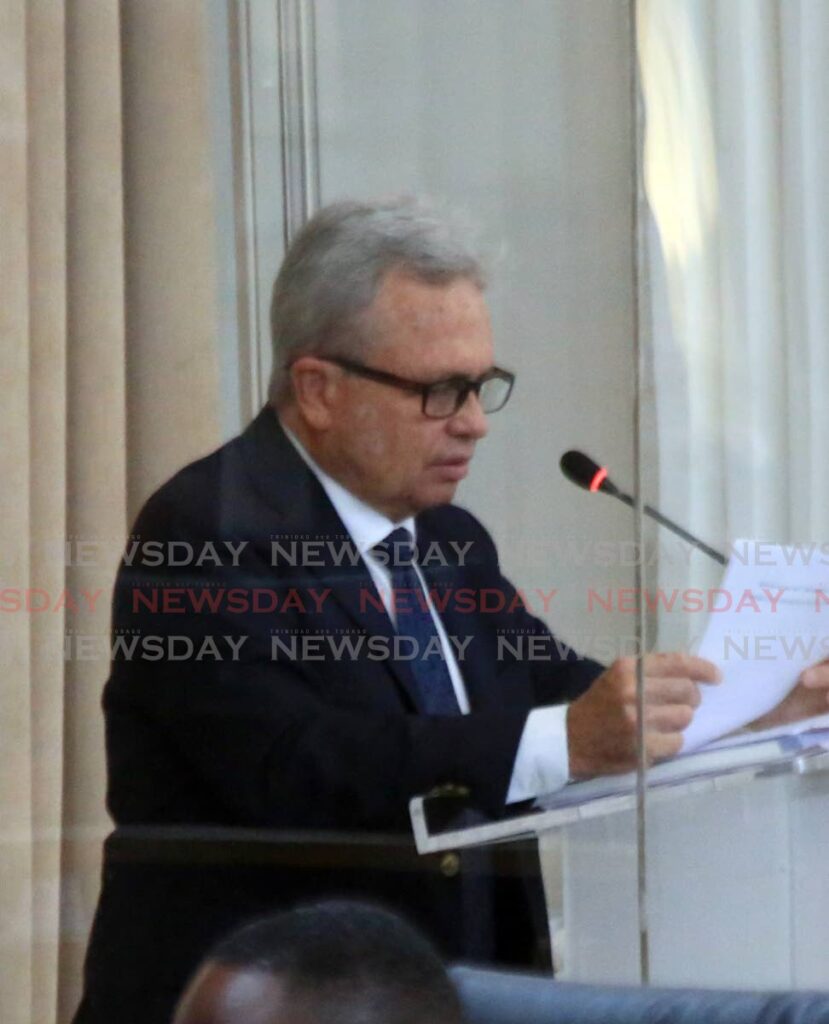Inflation logic of Finance Minister

LINUS F DIDIER
SOMETIMES one does not know whether to laugh or cry at the utterances of Finance Minister Colm Imbert.
He recently stated that inflationary pressures in TT were not caused by government-mandated fuel price increases, but by price-gouging by taxi drivers.
He said that "while fuel prices may increase by ten cents, taxi fare rates may increase by $1, $5 or $10 in some cases."
That is so emblematic of him and the Government he represents to blame the "small man." Remember that this is a government of the rich, by the rich and for the rich.
Let us look at some real figures, Imbert. You know, the ones you shy away from because they do not make your government look good.
The tale of less gas for more money.
Between 2015, when this administration was first voted into office, and 2022, the price of super gasoline was increased by 158 per cent, from $2.70 to $6.97 per litre.
In 2022, super gasoline increased by 40.5 per cent, from $4.97 to $6.97 per litre. People forget that we had two price increases this year.
The unsubsidised price of super gasoline is $7.59 per litre. That means a further increase, of at least nine per cent or 62 cents more per litre, is on the cards in the very near future.
Between 2015 and 2022, the price of diesel increased by 194.5 per cent, from $1.50 to $4.41 per litre.
In 2022, diesel increased by 29.5 per cent, from $3.41 to $4.41. The unsubsidised price of diesel is $7.75.
The Government has stated that its intention is to try and keep some kind of subsidy on diesel.
I hear the refrain: "The Government is not closing down Petrotrin. And in case you were just opening your fridge and you did not hear that when you closed the door, let me repeat it: The Government of TT is not closing down Petrotrin."
A few moments later, all Petrotrin employees were fired.
Between 2015 and 2022, the price of premium gas increased by 35 per cent, from $5.75 to $7.75. Ditto in 2022.
The unsubsidised price of premium gas is $7.66. Premium users are paying beyond a premium for their gas.
Between September 2015 and April 2016, the price of super gasoline increased by 32.5 per cent, from $2.70 to $3.58 per litre, and the price of diesel, from September 2015 to October 2016, increased by 53 per cent, from $1.50 to $2.30 per litre.
In November 2016, Diego Martin/Petit Valley taxi drivers increased their fare, from Port of Spain to Diego Martin/Petit Valley by 40 per cent, from $5 to $7.
From 2016 to 2022, the price of super gasoline increased by 95 per cent, from $3.58 to $6.97 and the price of diesel increased by 92 per cent, from $2.30 to $4.41 per litre.
There was no fare increase by the Diego Martin/Petit Valley taxi drivers.
In November 2022, the Diego Martin/Petit Valley taxi drivers increased their fare by 14.5 per cent, from $7 to $8. This was their first fare increase since 2016 – six years.
This is just one example.
Can Imbert state where is the price-gouging?
He conveniently forgot that these taxi drivers, and many others, struggled through almost two years of covid19, with greatly reduced passenger loads, due to his government's policies. No doubt their finances were severely impacted.
It is very unfair for Imbert to blame the taxi drivers for responding to actions done by his government.
He desperately tried to downplay the Government's role in rising inflation.
A key part of any government's macro-economic policy objectives is the management of the inflation rate. The Central Bank, which carries out monetary policy on behalf of the Government, in its November monetary policy report, stated that "the most significant impact on core inflation is anticipated to come from the pass-through of higher fuel prices to the transport sub-index."
Can Imbert say whether, in the history of independent TT, any government, especially a PNM government, has ever told the nation what is its maximum targeted inflation rate?
The UK government, for example, has tagged its inflation rate at a maximum of two per cent. All monetary policies are targeted towards ensuring that, under normal circumstances, this rate is not exceeded.
Do I hear crickets from TT?


Comments
"Inflation logic of Finance Minister"